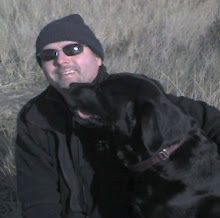Following on the footsteps of the previous post in which I mentioned the tech side of the DGA's annual "Digital Day," there are a lot of significant things happening in the business right now that I think are exciting.
As with any conversation for me, that has to do with storytelling, and technology - I get pretty passionate, and excited. Matter of fact, I'm pretty wound up right now.
In thinking of all the things that are happening in our business, the changes in production, post-production, and delivery are all amazing. This, I truly believe, is a GREAT TIME to be a filmmaker.
But what is changing even further are the underlying economics and sociological model of our business.First, regarding the business itself, consider the following:
Film and television were the dominant, most widely consumed entertainment product (after books, of course) for a very long time. For many years, the theaters were the only places that you could see movies. Then came television. And a corresponding decline in theatrical attendance. (which spawned lots of new "gimmicks" to get people back in the theaters, like CinemaScope, et. al.). Then came home video which was still an overall revenue driver. So it was just competition with different formats, but the same media. Now, it's not only different formats, it's different media. It's video games, and the internet itself as our competition.
Incidentally, the most profitable time in history for the movie studios was when they OWNED the theater chains themselves, which the
FTC forced them out of in 1948 as part of an antitrust proceeding.
The problems of continuing with business as usual however, are mounting.
1. First and foremost, narrative content (movies and television, et. al.) have lost significant market share to games.
In 2004, the domestic theatrical business did about
$9.4 billion in box office - while this was an increase in dollars over previous years, it was achieved through wider releases and more screens (and therefore, higher costs) and through high ticket prices. Real admissions dropped by about 2% (after a 4% drop in 2003)
The game business, however, piled up over $7 billion in sales, and growing tremendously.
This is not say that the film business is going away, or being overtaken by video games. Our business is racking up DOUBLE the theatrical receipts in home video and VOD, which puts it up around a $30 Billion dollar industry.
The point IS, however that film and television have significant competition, where before, there was very little.
2. Second, and equally important, is that the
audience themselves now dictate when, where, and how they want to consume their media.The importance of this concept, and it's impact on the movie business, cannot be understated.
Outside of the movie theater itself, WE, the movie business, must do all that we can to find ways to deliver our stories to as many people as possible, in as many formats as possible, as efficiently as we can.
Does this add to our costs? Yes.
Does it make it more difficult to market the content? Yes.
Will it make us a lot better profits if we can execute smartly? Yes.
But executing smartly means that the costs must go down.
It's very interesting to me that also for the first time in history, we have people out there making
films for $1,100 and yet at the same time, studios greenlighting budgets of ungodly proportions like the $150 million budget on the plate for David Fincher's adaptation of "The Curious Case of Benjamin Buttons" (the budget WAS over $200 million until the studio came back and said it had to be 'less').
The disparity is amazing, and while in most cases the difference in production value is vast, the hit or miss of story doesn't seem to be any better at the top end, than at the bottom end.
What's it all mean? It means that movies that cost more, don't necessarily make more. It means that star salaries in the stratosphere automatically mean that those stars will no longer get access to the "best" material, because much of it exists outside of the studio system.
It also has much further reaching implications as well, from the labor unions that will break your shoot and your budget the first chance they get (weren't unions originally created to battle BIG business??? I would argue that more and more films and filmmakers are going to become smaller and smaller business, as a whole.), to the amount of crap we will all have to filter through to find the good stories.
Anyway, the aside aside, our audience now dictate their experience with our stories - and it is the number of audience members we reach, and whether or not our story (or ad campaigns) are successful that determines whether or not we stay in business.
We can no longer spoon feed them our stories when and where WE determine it's best for us.
The day is coming soon where films, one-off's, indies and the like, will be consumed just like podcasts and music tracks on iTunes - maybe on something called iMedia.
It will change everything, just as small time podcasters are hitting the big time because they suddenly have found the means to get their voices out there to the world at large, so too, filmmakers and storytellers around the world will break out.
And it's all rooted in the brave new world of the digits.
What this means for the economics of the business? Chaos, for a few years, to be sure, while the new models work themselves out. Yeeehaw! It's going to be an interesting ride, for sure.
(footnote: by the way, you 'film purists' out there. Here's something new to consider, when you claim that because film is "organic" it's better. 1. Film is made on a synthetic base made from oil. 2. Both CCD's and transistors are made of silicon, which is organic. So there.)

